Stories from Old Newspapers
Below are a selection of local stories from days gone by.
"INQUEST AT MURCOTT - An inquest was held at The Nut Tree Inn, Murcott, on Friday the 10th inst., on the body of Thomas Collett, aged 71, contractor, of that village.
From the evidence, it appeared that the deceased took his horse along the road to his field after a day's work, and was later found lying in the road with a wound on his head, which was bleeding profusely. He was sensible when found, and told the two boys who found him that the horse shied as he was about to open the gate of the field, thereby throwing him to the ground. He lived for about four hours more, but died before medical aid could be procured. The horse was grazing on the side of the road near to where the deceased was lying, and it was stated in evidence that the horse was known to occasionally spook. Verdict: 'Accidental death'."
~ Oxford Journal, 18th June 1887.

"The remains of the late venerable Dr Samuel Gauntlett were removed from New College, Oxford, at 8 o'clock on Thursday morning, for interment at Bucknell, near Bicester. The Bishop of London, and some of Dr Gauntlett's relatives, attended on this solemn occasion. This venerable individual - whose death was caused by cholera morbus - was for many years Warden of New College."
~ The Sun, 23rd September 1822.
Samuel Gauntlett was born in Winchester, Hampshire in 1745, and was Warden of New College from 1792 until his death on 12th September 1822.
Prior to taking up the post of Warden in Oxford, Samuel was appointed as vicar of Portsea (Hampshire) in 1788, and also did a brief stint as rector of Colerne (Wiltshire).
He was interred at St Peter's Church, Bucknell, on 19th September 1822, although there is a memorial to him in St Mary's Church, Portsea. I cannot seem to find any obvious connection between Dr Gauntlett and Bucknell, so precisely why he was buried there remains a bit of a mystery!
The photograph below shows St Peter's Church in Bucknell.
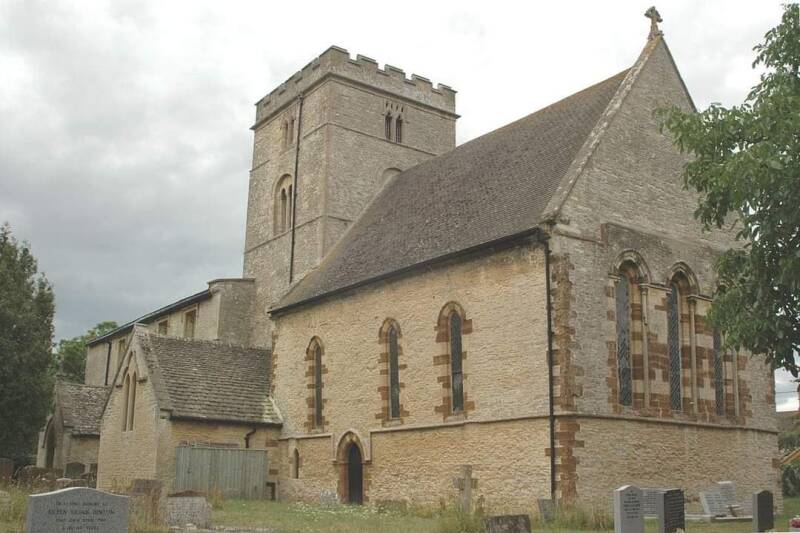
"Charlotte Tanner of Bicester, single woman, was charged with having, in the month of May 1856, run away and left her illegitimate child chargeable to the Bicester Union. Prisoner left the workhouse and went into service in London, but left the child at Bicester, where it has remained in the workhouse ever since. Prisoner never communicated to the authorities respecting the child, and was only made aware of the consequences of her neglect a few days ago. Committed to gaol for 6 weeks."
~ Bicester Advertiser, 11th July 1857.
The child in question was Mary Ann Tanner, who was born in 1852. Sadly, it would appear that Mary Ann remained in the workhouse until 1881, after which I cannot seem to find any trace of her... But I shall keep digging! Meanwhile, upon her release from prison, Charlotte Tanner lived at various addresses in Bicester and surrounding villages. She never married, and died in Bicester in 1908. As far as I can tell, Charlotte never had any other children. It is heartbreaking to think that she never went back to rescue her poor daughter from the workhouse.
The photograph below shows Bicester Union Workhouse, where Mary Ann Tanner spent at least 29 years of her life.
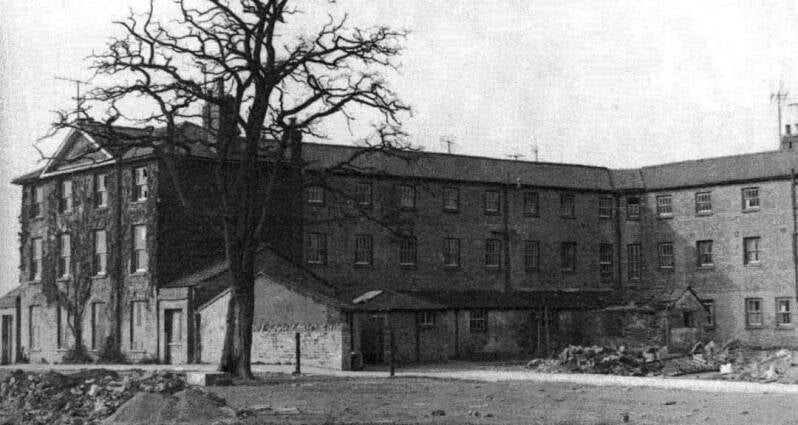
"At The White Hart, Ludgershall, the resident darts team entertained players from The Rose & Crown (Brill) on Friday, and beat them seven games to one."
~ Bucks Advertiser & Aylesbury News, 13th February 1948.
Now a Grade II listed private property, The Old White Hart was built circa the 17th century.
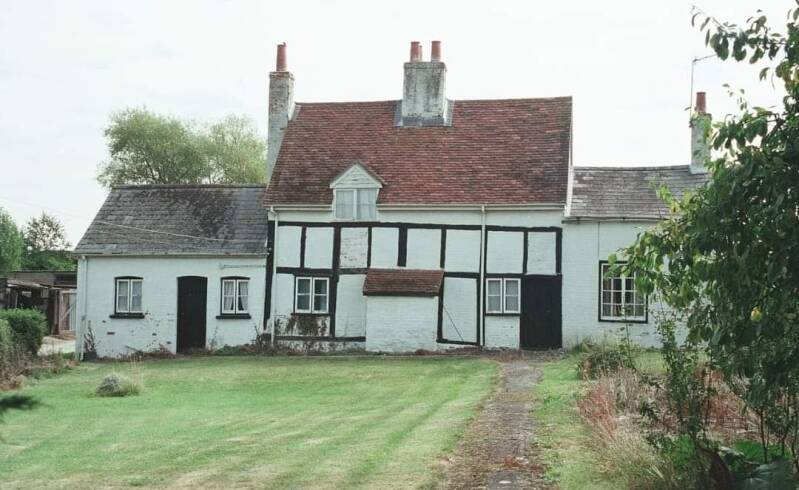
"A PATERNITY QUESTION - Mary Ann Barber charged Thomas Wakelin of Bucknell with fathering her illegitimate child; the principal corroborative evidence was that the young woman's aunt, Mary Payne, deposed to having heard Wakelin offer the young woman between 20 - 30s. if she did not charge the child upon him. However, the Bench did not consider the case proved, and therefore dismissed it."
~ Bicester Herald, 6th June 1862.
The photograph below shows Bucknell in 1910. Source: Historic England.
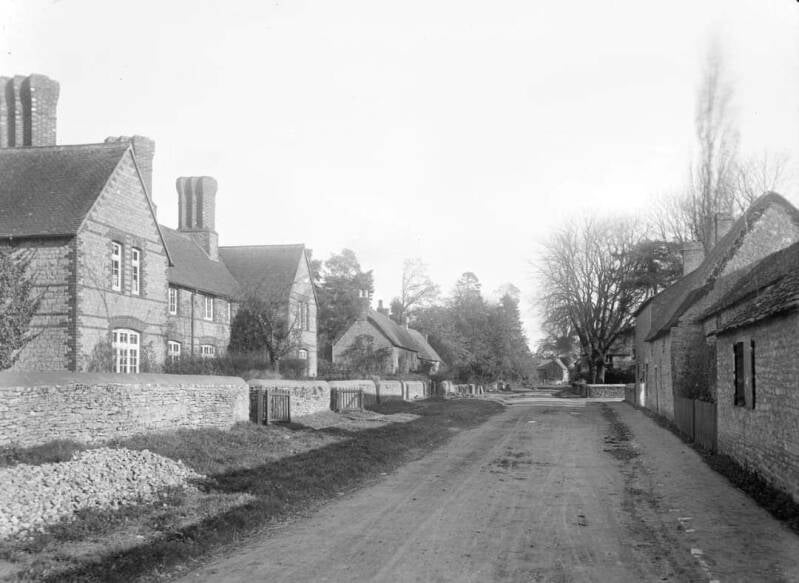
"THE CROSS KEYS COMMERCIAL INN, BICESTER - Mrs E. Frowd begs to return her most grateful thanks to the friends and patrons of her late husband, Mr Henry Frowd, now deceased, for their kind support during a period of 20 years; and begs to inform them that she intends to carry on the business; and hopes, by strict attention, and supplying good articles, to merit a continuance of their favours."
~ Bicester Herald, 15th April 1859.
The Cross Keys public house was once located on the Market Square in Bicester, roughly where Papa John's Pizza is now. The photograph below was taken in 1895, and shows pub on the left.
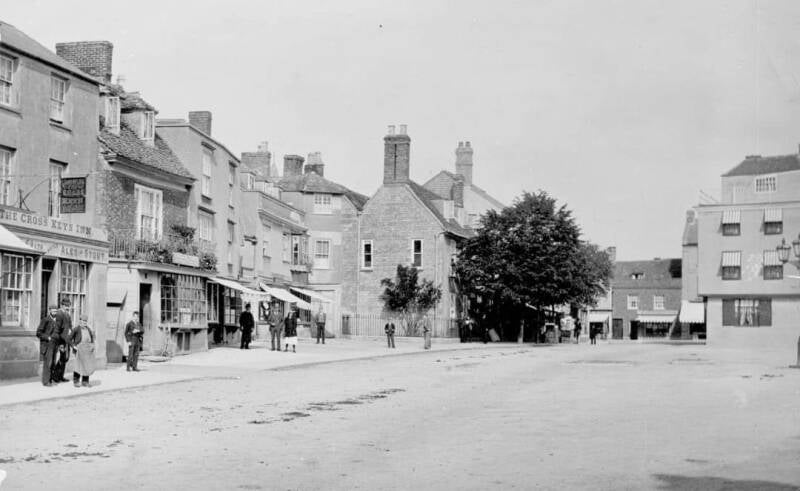
"SUDDEN DEATH - An inquest was held at The Crown Inn, Charlton-on-Otmoor, on the body of Sarah Nappin (wife of Mr Joseph Nappin, boot and shoe maker), who died suddenly on Wednesday night. Mr Nappin deposed: "I live at Charlton, and the body which the jury have viewed today is that of my wife, Sarah Nappin. She is 65 years of age. She has not been medically attended during the last twelve months, though she has suffered occasionally from indigestion. She also had a paralytic stroke about ten years ago, but had almost fully recovered. She went to bed on Wednesday night at about 9pm, and when I went up about an hour later, she was sitting up in bed, and complained of severe pain in her chest. I gave her a teaspoonful of whiskey and water. At about 11.30pm, she lay down again, but was soon up again, being sick. She said she would be alright soon. At about 12.15am, I awoke with a start, as I heard a gurgling sound. By the time that I turned over to look at her, my wife had died."
Thomas Honour - a farmer, also of Charlton - told the jury that he'd seen Mrs Nappin on the day before her death, and that she had complained of pain in her chest.
The jury returned a verdict that the deceased had died from 'sudden failure of the heart's action'. The deceased was buried in St Mary's cemetery on the following Saturday afternoon."
~ Oxford Times, 2nd January 1904.
The photograph below shows Charlton-on-Otmoor in 1900. Source: Historic England.
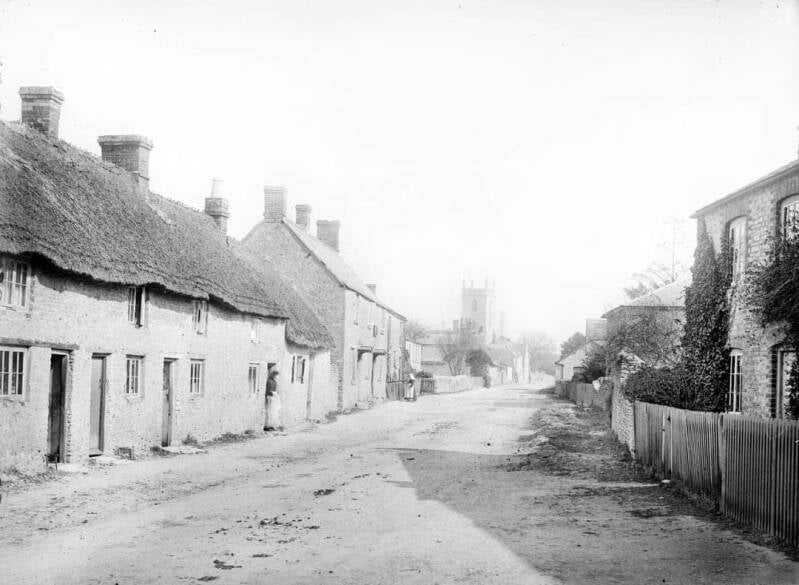
"At Launton, we are sorry to say, the recent flood resulted in the loss of human life. Edwin Plant, aged 13 - a native of Charndon - was drowned near the village, whilst on his way to Bicester with his father, at about 11pm on Saturday night. Further particulars of this melancholy affair were gleaned from the inquest, which took place at The Bull Inn, Launton.
James Plant deposed: "I am a labourer of Charndon. The deceased is my son. He is 13 years of age. He has never had his right senses, and is subject to fits. I have been working at Wootton, near Woodstock, and I took him with me, to train him to do a little work. We started home from Wootton between 3 - 4 o'clock on Saturday afternoon; it is nearly 20 miles from Wootton to Charndon. It had been raining heavily during our entire journey. We passed through Launton, and we were up to our knees in water. My son suddenly fell, or slipped, and went under the water. I waded towards him, and managed to pull him out. He had fallen into a deep ditch, which was not visible beneath the surface of the water. He was still alive, but could not speak. I called for Thomas Herring - the night watchman at Launton Station - and he came to help me. Suddenly, my son went into a fit. Myself and Mr Herring carried the deceased into the watchman's hut, where he died in my arms."
The jury returned the following verdict: 'that the said Edwin Plant, by accident, misfortune, or possibly in a fit, fell into the water, and was thereby suffocated and drowned'.
It will be remembered that John Wise of Launton was drowned near that spot a few years since. We think, to prevent the recurrence of such sad incidents, that the local authorities should erect some kind of protection between the footpath and the deep, dangerous ditch."
~ Bicester Herald, 15th October 1875.
The photograph below shows Launton in 1904. Source: Historic England.
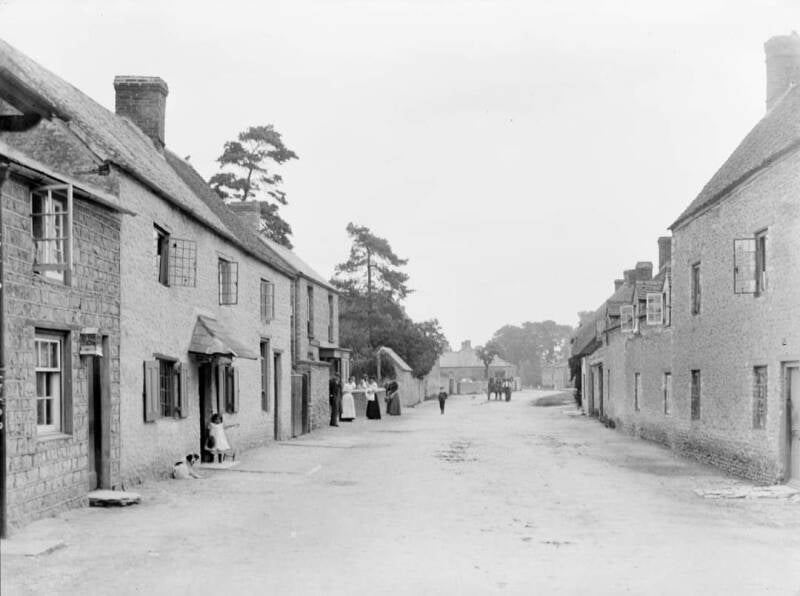
"FOUND DROWNED IN THE CHERWELL - An inquest was held at The Red Lion Inn, Islip, yesterday week, upon the body of John Castle, who was found in the river the previous day. William James Beckley - a labourer, of Islip - deposed that he noticed a man's bowler hat, a spectacle case, a belt, and a stick lying on the bank. Upon looking into the water, he saw a man lying face-down in the river. He managed to drag the man onto the bank, with the assistance of a man named Medcraft. The body was quite dead. Beckley recognised it as the body of John Castle, who had formerly lived in the village, but had not resided there for the past three years. PC Moulden made inquiries to see if any family of the deceased could be found, but discovered that he had a brother who was a tramp (whereabouts unknown), and a sister who was in an asylum. During the medical examination, it was found that there were no marks of violence upon the body, and that Castle had clearly drowned. He was about 70 years of age. His right hand had been clutching reeds, thereby proving that he had not thrown himself into the river deliberately, and had attempted to escape. The water was only three feet in depth, and consequently, it was possible for him to stand up, but for some reason - perhaps due to weakness - he had not. The jury returned a verdict of 'found drowned'."
~ Bicester Herald, 6th October 1911.
I personally find it very odd that poor John Castle had laid out his belongings carefully on the bank before entering the river...

"An inquest was held at The Plough Inn, Merton, on the 2nd inst., on the body of William Charles Truby, aged 14 days - the son of John Truby, labourer. It appeared in evidence that the deceased was a healthy child when born, and continued to thrive satisfactorily for the first week, when it was attacked with 'white mouth', and on its getting worse, Dr Cotterell of Bicester was sent for; but on his arrival, he found the child dead. Death arose from convulsions, and the jury returned a verdict to that effect."
~ Oxford Times, 10th May 1890.
It looks as if 'white mouth' was an old term for leukoplakia: 'a precancerous lesion that forms on the tongue or the inside of the cheek, in response to a persistent irritation'. If left untreated, it can progress rapidly, and cause obstruction of the airways/convulsions. It is a type of oral cancer.
The image below shows The Plough, which is now closed

Create Your Own Website With Webador